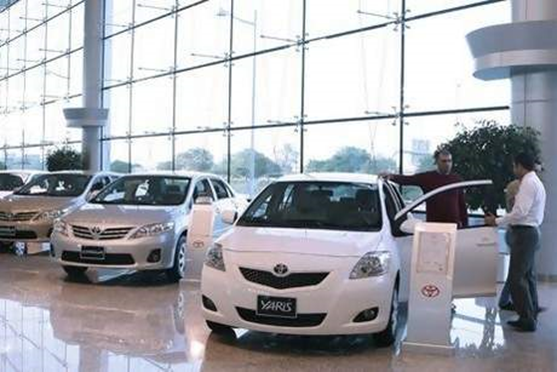Drive down any motorway and it’s easy to see how important the UAE’s trading relationship with Japan has become.
Everywhere you look there are Toyotas, Hondas and Nissans – even the odd Suzuki. But the huge number of Japanese-made vehicles on the roads is just the tip of the iceberg.
Most of the Japanese cars, vans and lorries that make their way to the Middle East and Africa are imported through Jebel Ali in Dubai before being re-exported to their final destination. Wherever they end up, though, cars and trucks made in Japan account for 50 per cent of all exports from there into the UAE.
“Dubai has become a very important regional headquarters for all Japanese manufacturers,” said Hiroki Matsumoto, managing director of the Japan External Trade Organization in Dubai. “From here they can reach the entire Middle East and Africa region. Perhaps before they might have been based in Johannesburg in South Africa, but now they have moved or are moving to Dubai.”
Last year the value of Japanese vehicles exported to the UAE rose by almost 42 per cent to Dh16.5 billion, compared with Dh11.6bn in 2011.
There had been a significant drop in 2011, however, because of the earthquake, tsunami and nuclear disasters that devastated parts of Japan and brought manufacturing to a standstill for months.
What is more, the UAE was the seventh largest vehicles export market for Japan in 2012, advancing three positions from the previous year. The USA remained the top market for Japanese vehicles, with China, Australia, Russia, Thailand and Canada ahead of the UAE.
Car makers may be the most visible of Japanese companies operating in the UAE, but they are by no means alone. More than 380 corporate entities from Japan have a presence in the UAE, about 280 of them in Dubai.
Construction companies like Hitachi Plant Engineering had a hand in building landmarks of the Dubai skyline such as the Burj Khalifa and the Dubai Metro.
If you see a bulldozer or mechanical digger excavating a foundation or clearing the way for a new development, chances are it will be a Japanese made Kubota.
Electronics manufacturers such as Panasonic, Sony, Sharp and Toshiba have all set up big regional offices in the UAE to service the wider region as well as make their mark in the retail sector.
The healthcare market is also important to Japanese companies such as Fuji, which once made camera film but now specializes in high-end optical devices such as medical imaging machines.
“Sales of goods for Japanese manufacturers in the UAE are very small on a global scale as the country is very small,” Mr Matsumoto said. “But Japanese goods are expensive because they are high quality and so they are popular here.”
Japan is also a major leading importer of UAE oil and gas. “We are a big manufacturer and so we need a great deal of energy,” Mr Matsumoto added. “Sine the beginning of the UAE in the early 1970s we have imported oil and gas.”
UAE-made pasta and Masafi bottled water are also unusually popular in Japan, according to the Japan External Trade Organization, which Mr Matsumoto hopes will popularise more UAE made products in the future.
“We want to diversify our trading relationship in the future with agricultural products perhaps and more manufactured goods,” he said. “This is an important relationship to us.”



